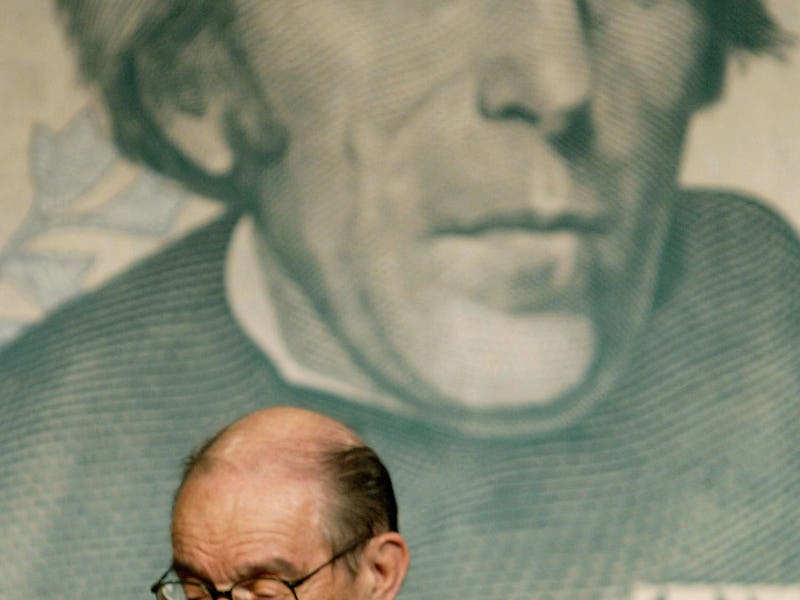The Indefensible Position: Andrew Jackson Deserves to Stay on the $20 Bill
Why Andrew Jackson Totally Deserves to Stay on the $20 Bill

Editor's note: This is the first in a series of argumentative essays assigned to writers that found the pre-determined thesis morally or intellectually repulsive. Things got a little ugly.
Of all the candidates to usurp our seventh president on the $20 bill, can someone go ahead and say: Harriet Tubman, really? America's infatuation with outlaws and smugglers has gone too far. "Of a chestnut color," her wanted poster read, "fine looking, and about 5 feet high." Yes, these were details offered up in hopes that Tubman, an escaped slave, would be returned to the servitude of the most abominable human institution ever codified in American law, an institution that Tubman worked bravely and tirelessly to subvert and abolish — but what does it say for our country that we can move so seamlessly between alleged criminality and our very currency? What would we be conveying to the impressionable malcontents of this great country — the bullet-raining biker gangs, the JP Morgan Chase traders, the population-bombing conservative Christian reality TV stars — if we were to so enshrine a person who so flouted the laws of her day?
I read A People’s History of the United States, same as you, and agree wholeheartedly that Andrew Jackson — statesman, patriot, victor at the Battle of New Orleans and thus, similar to Lincoln, a legitimate preserver of the union — had his warts. We’ll get to those. But he served in the Revolutionary War! He helped to found Memphis! And more to the point of his place on the American twenty — one of the most circulated pieces of currency in the world — he was a notorious enemy of public corruption, rooting up the patronage system that permeated the federal government and launching audits of every Cabinet-level department. Andrew Jackson doesn’t just make up your money; he saved your country money, and at a time when the financial health of the United States meant a great deal to its survival prospects.
There is no money without symbolism; by definition, currency represents what you could have by exchanging it — by itself, it is inedible, unwearable, undrinkable. A $20 bill cannot itself wash your car or keep the rain off your head or get you at all drunk. To drive the economy, and to move closer to our own versions of the happiness the Constitution assures us we can pursue, we must hand a banknote to another hardworking American. The trust we ascribe to that paper, to its constancy as a symbol of enduring worth, is what keeps this whole project afloat. A 20 without Andrew Jackson would appear as counterfeit in many corners of the world where American paper money is the steadiest form of currency going. For all his crimes and faults, Jackson was an architect of the most reliable economy in the world, generally speaking. There's value in that, worth acknowledging.
That doesn't mean we should forget that Jackson was instrumental in federal policies that wrenched American Indians away from their ancestral lands; that he burned Seminole villages during his incursions to tame Florida, possibly as retribution for their supporting escaped slaves; that the Trail of Tears was his baby; that, as Michael Grunwald wrote in The Swamp, his military adventurism into south Florida forced the Seminoles deep into subtropical backwaters to survive, unconquered, as a nomadic band of guerrilla fighters as the American soldiers forced into that hell of mosquitoes and deprivation went mad and died wretched deaths; that even now, American gradeschoolers are holding mock trials that find Jackson guilty of crimes against humanity for his removal of the Cherokee.
American money is American power. Keeping Jackson on the yuppie food stamp should serve as a reminder to those who can spend to do so wisely, for your choices will echo into history. Or maybe they tell us the rich face no real justice in the world and that Harriet Tubman deserves better than to be dragged into a conversation with the likes of Jackson. You're free to defend that position on your own dime.